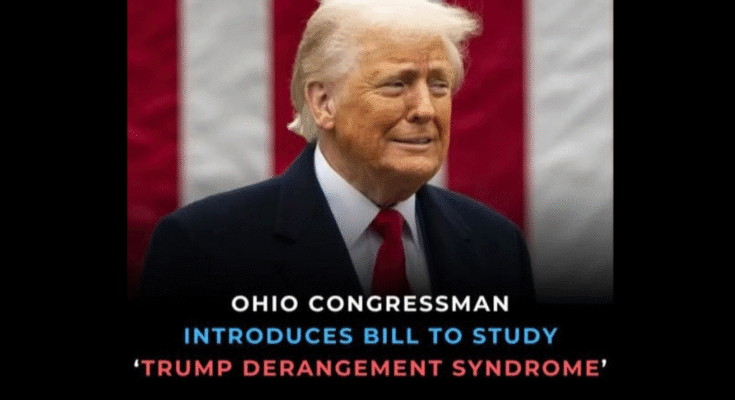WASHINGTON (WCMH) – An Ohio congressman introduced a bill asking the National Institute of Health to study “Trump Derangement Syndrome,” or extreme negative reactions to President Donald Trump.
Rep. Warren Davidson, a Republican representing southwestern Ohio, introduced the Trump Derangement Syndrome (TDS) Research Act of 2025 on May 15. Co-sponsored by Rep. Barry Moore (R-Alabama), the bill would research “the instinctual negative and often violent reaction to any supportive statement or event related to President Trump.”
“The phenomenon at play here is political polarization, and this is something that has been studied extensively by social scientists like myself and many other people smarter than me,” Dominik Stecula, an expert on American politics and misinformation who teaches communication and political science at Ohio State, said. “It includes dislike, distrust and even dehumanization of political opponents.”
South-Western school board joins groups denouncing gender identity, DEI and non-English languages
Trump Derangement Syndrome is not a new concept, with psychologist and political columnist Charles Krauthammer coining the term “Bush Derangement Syndrome” in 2003. Former President Barack Obama faced a similar phrase in his presidency, as did Trump in his first term. However, experts agree it is a political reaction, not a medical condition.
“The idea that there is a ‘Trump Derangement Syndrome’ has no basis in medical or scientific fact; it is a myth,” said Thomas Nelson, head of the political psychology program at Ohio State University. “Rep. Davidson’s proposal tells me a lot more about him than about this supposed syndrome.”
Nelson said Davidson’s bill indicates a belief that anyone who disagrees with him or Trump “must be ignorant, biased or deluded,” which he said is a common phenomenon in highly polarized societies.
Davidson’s proposal would study TDS as a formal condition, and he said the TDS Research Act would investigate TDS’ origins and contributing factors, including “the media’s role in amplifying the spread of TDS.” It would also look at long-term effects and research how media and polarization shape political unrest.
Ohio bill to celebrate ‘natural family’ month excludes LGBTQ+, single parents
“TDS has divided families, the country and led to nationwide violence — including two assassination attempts on President Trump,” Davidson said. “The TDS Research Act would require the NIH to study this toxic state of mind, so we can understand the root cause and identify solutions.”
Stecula agreed that TDS is not a real medical condition. He said there are already plenty of researchers who examine the psychology of political polarization.
“But that’s not what this bill appears to be about. Instead, it seems to focus on branding political dissent as mental illness,” Stecula said.
Stecula and Nelson pointed out the bill would use research funding at a time when the federal government is cracking down on university research, including cutting billions in mental health research. Davidson said the act would use existing NIH resources to avoid new spending and added it would be a better use of funds than some other NIH studies.
Investigation finds Kroger overcharging for sale items
“Instead of funding ludicrous studies such as giving methamphetamine to cats or teaching monkeys to gamble for their drinking water, the NIH should use that funding to research issues that are relevant to the real world,” Davidson said.
Nelson said it was unfortunate Davidson “chose to make light” of serious cuts to research funding, especially to universities like Ohio State. More cuts may be coming; Trump’s budget proposal cuts nearly $18 billion from the National Institute of Health and another $1 billion from the Substance Abuse and Mental Health Services Administration.
“It’s no secret that Trump is no fan of these institutions, and has cut their funding drastically, in part because he feels that they are too ‘woke’ and politicized,” Nelson said. “Ironically, Rep. Davidson’s proposal, if it were serious, would be the ultimate example of politicizing scientific research for partisan benefit.”
The act was referred to the House Committee on Energy and Commerce on May 15, but the Library of Congress does not yet have the bill’s text online. No other action has yet been taken on the bill.



